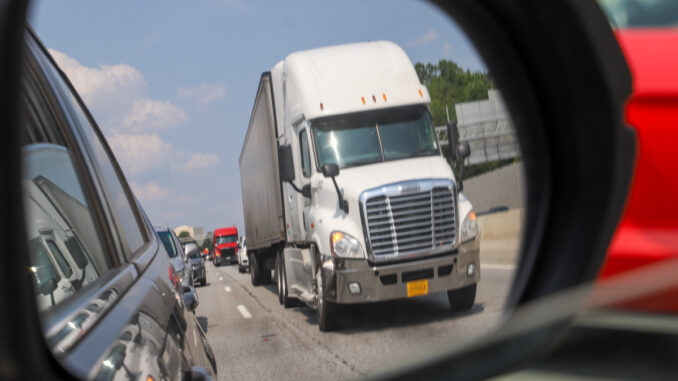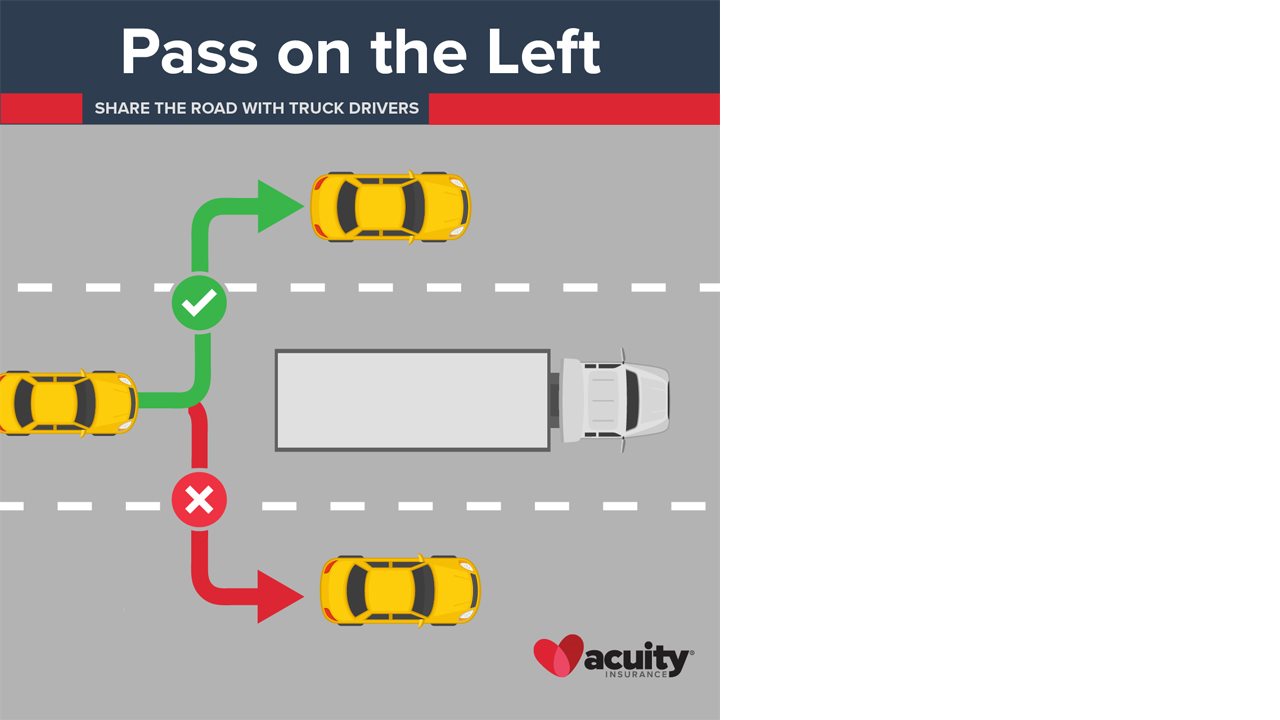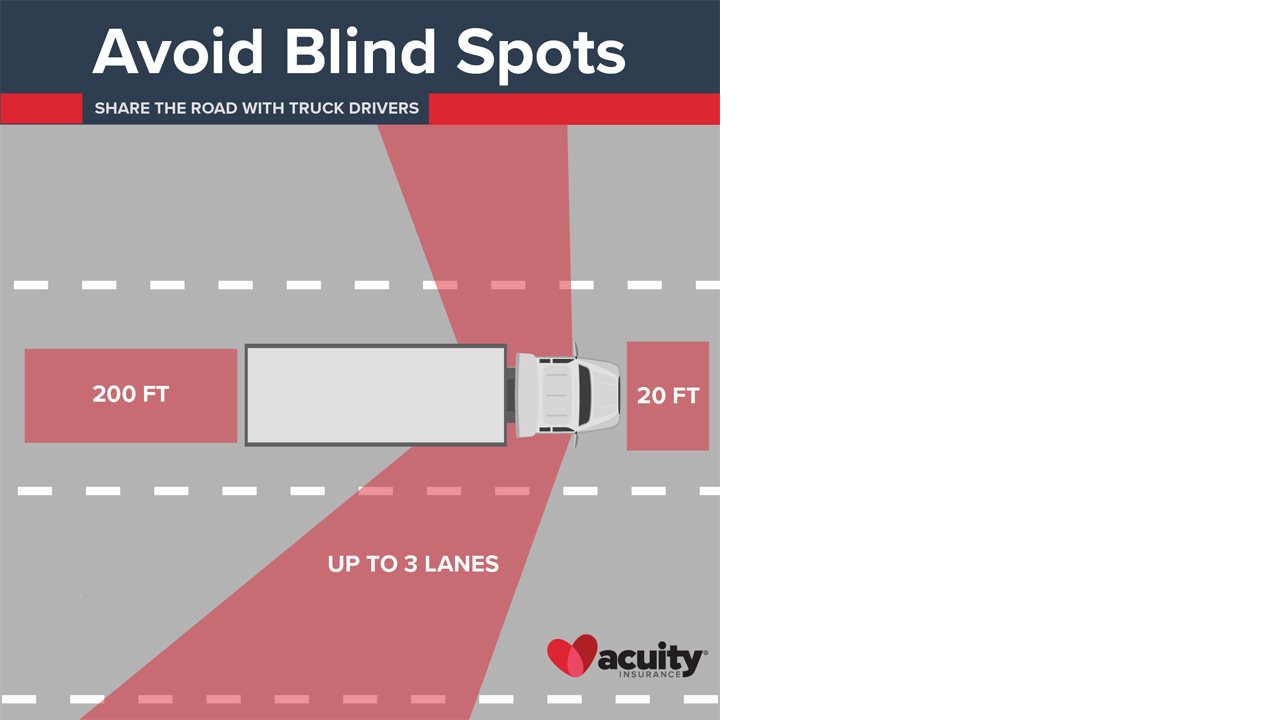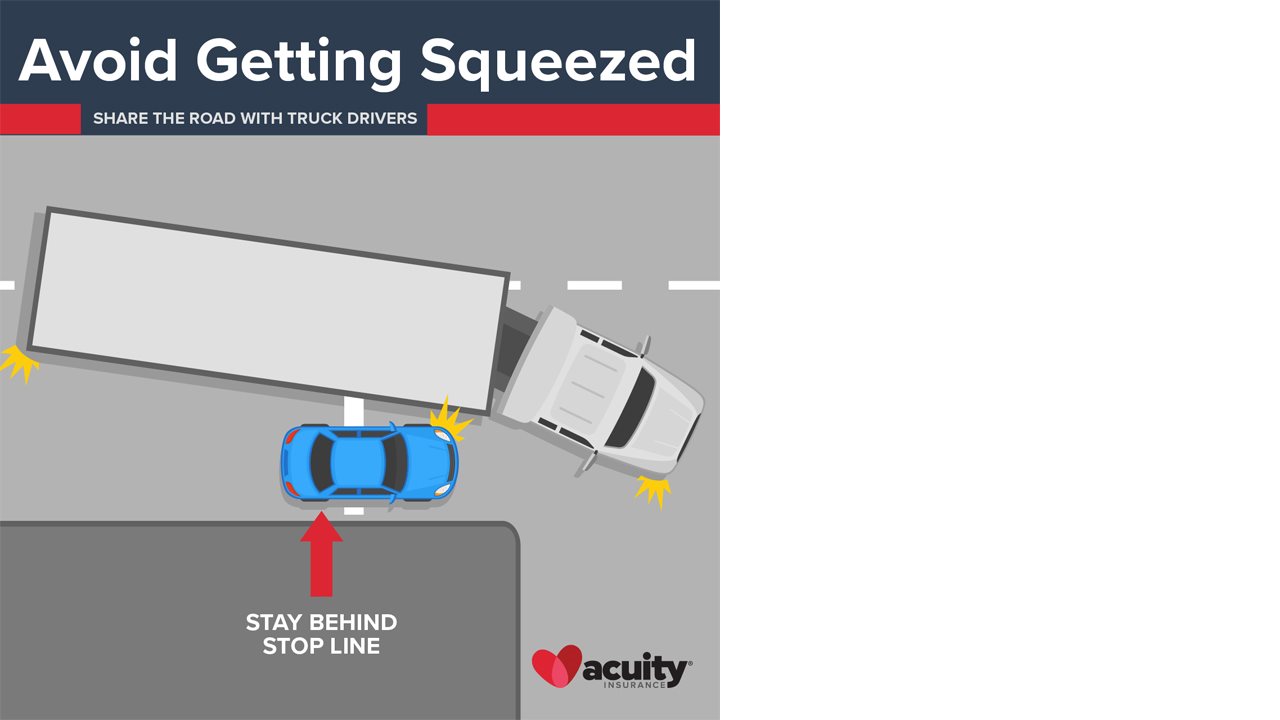
(BPT) – According to the Federal Motor Carrier Safety Administration, nearly 740,000 people were injured in large-truck crashes from 2016 to 2020, exceeding the previous five-year total by nearly 44%.
To make matters worse, the National Highway Traffic Safety Administration reported 5,788 fatalities resulting from large-truck accidents in 2021.
Drivers of large trucks are often blamed for these alarming metrics due to the sheer size of commercial trucks. However, crash data and analysis indicate that other parties are more commonly at fault.
“Research from the American Trucking Association has revealed that passenger vehicle drivers are at fault in nearly 75% of all fatal car-truck crashes,” says Cliff Johnson, trucking business segment consultant, Acuity Insurance. “This showcases just how important it is for motorists to know how to safely share the road with truck drivers.”
As Johnson indicates, drivers of passenger vehicles can play a pivotal role in mitigating truck collisions. The following tips represent best practices that can help motorists improve roadway safety and reduce future crash totals:
1. How to Pass a Truck

It can take nearly the distance of two football fields for a truck that’s traveling at 65 miles per hour to come to a complete stop. If you need to pass a truck, try to do so on the left-hand side. After confirming that you have enough space to completely pass the truck, use your directional signals and ensure you can see the entire front of the vehicle in your rearview mirror before moving back into the trucker’s lane.
2. Avoid Driving in No-Zones

If you can’t see a truck driver in either of the truck’s side mirrors, you are in the driver’s blind spot. Steering clear of the following areas can ensure your vehicle is always visible:
- Up to 20 feet in front of the hood
- Up to 200 feet behind the trailer
- The area from the driver’s door to the trailer bulkhead
- The passenger side from the front bumper to the back of the trailer up to three lanes wide
3. Keep Your Distance
Driving too close to a large truck can prevent you from having enough time to react to roadway hazards, which can result in serious rear-end crashes. When traveling at highway speeds, keep enough distance to see mirrors on both sides of the truck. In slower traffic areas, you should always be far enough away to at least see the truck’s driver-side mirror.
4. Provide Space on Turns

Due to their width and size, large trucks require significantly more space than a passenger vehicle when making turns. As truck drivers often swing wide to complete right- or left-hand turns to avoid contact with a curb, median or sidewalk, never drive along the side of a truck when it’s turning — even if there appears to be space. Also, be sure your vehicle is positioned behind the intersection’s stop line to ensure trucks have enough room to maneuver through crossroads or intersections.
“Keeping our roads safe is a responsibility we all share,” Johnson says. “That’s why mutual respect and awareness are essential to reducing accidents.”
While these safety tips can help you avoid roadway collisions, accidents still happen. Contact an independent insurance agent to ensure your vehicle and financial future are adequately protected from the effects of roadway mishaps.
This article was published by Brandpoint and is republished here with permission. Click here to view the original.

